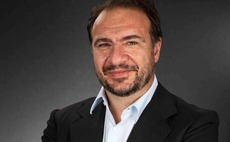
LP interview: Ontario Teachers' Pension Plan
Jane Rowe, senior vice president at Ontario Teachers’ Pension Plan, explains the attractions of spin-out GPs in Asia and why co-investment is an important – but not the only – consideration in manager selection
Teachers' Private Capital (TPC), the private equity and direct investment arm of Ontario Teachers' Pension Plan (OTPP), likes backing Asia spin-outs.
Of the seven GPs it backs in the region, five - PAG, MBK Partners, FountainVest Partners, Unitas Capital and Kedaara Capital - were established by PE professionals who left large firms in favor of a more independent existence. And for four out of these five, TPC has been a significant LP since their inception.
"We are always open to meeting talent that wants to do this," says Jane Rowe, senior vice president at Teachers' Private Capital and Infrastructure. "Sometimes funds have proven to be successful and they come on to our radar screen and we will invest, but if we can find the right team to back early in their partnership it has proven to be quite successful for us."
The first of these spin-outs dates back to 2005 when Michael B. Kim departed The Carlyle Group and set up MBK Partners. The firm closed its debut fund the following year at $1.56 billion, with TPC among the anchor investors. This was the largest first-time vehicle raised in the region until Weijian Shan, who moved from TPG Capital to PAG, accumulated $2.5 billion in 2011, also with TPC's support. Last month MBK closed its third North Asia-focused buyout fund at $2.7 billion.
Kedaara is the most recent addition to TPC's Asia portfolio. The Indian GP, set up by Manish Kejriwal, formerly country head of Temasek Holdings, is expected to raise upwards of $500 million for its debut vehicle.
"In India we looked at number of different groups and hadn't found one for which the chemistry felt right. When we think about the guys at Kedaara, we liked the background they brought to the table - a strong mix of local networks and Western training and skills," says Rowe. Her team met with Kedaara a dozen times before closing on the documentation and it wasn't until the sixth meeting that they felt ready to conduct deep due diligence.
Kejriwal's Temasek credentials were a plus point. FountainVest, now into its second fund, was set up by several members of Temasek's China team in 2007, with TPC again participating as an anchor investor. "The chemistry of folks coming from sovereign wealth backgrounds with strong track records has worked well for us so we appreciated that," Rowe adds.
Big spender
OTPP's total assets stood at C$129.5 billion ($126 billion) at the end of 2012, up from C$117.1 billion the previous year, with a 13% return for the 12-month period. The fund's total value has nearly doubled since 2002. TPC has deployed C$12 billion globally, split equally between fund and direct investments.
This includes commitments to GPs that invest in Asia out of global funds. Asia-based GPs, meanwhile, have received C$1.5 billion and a further C$1 billion has been committed and is available to be drawn down.
Now that OTPP has an office in Hong Kong, TPC's capacity for co-investment in Asia is likely to increase. Its first co-investment in the region came in 2007 and since then opportunities have been pursued selectively, most recently alongside MBK in South Korea.
OTPP's most visible direct and co-investments in Asia have been the work of its public equities and infrastructure units - such as a $300 million pre-IPO commitment to Chinese online retailer JD.com and the A$2.3 billion purchase of a 50-year lease on Sydney Desalination Plant alongside Hastings Fund Management.
While the availability of co-investment is an important consideration for TPC when making allocations, it is not a deal breaker: where there is a low probability of opportunities emerging, more emphasis is placed on projected net returns, and whether a firm can maintain its track record.
"There are two schools of thought on co-investment. We are of the co-underwriting school of thought - partnering with the GP from the very beginning on a particular opportunity and bringing in our own industry experts who have done lots of deals in that sector," says Rowe. "At the other of the spectrum are folks that have no desire to go deep into the due diligence or documentation. Maybe they go to two meetings decide they want to ride on the coattails of the GP."
The criteria for participation are fourfold: the economics must be superior to participating in a fund; TPC is able to learn about a particular geography or sector; it facilitates engagement with GPs and offers insight into operations; and it is more efficient than searching for opportunities independently, i.e. TPC only looks at the small percentage of deals that make it through a GP's due diligence.
Size matters?
One of the reasons that engagement and co-investment are forthcoming is TPC makes sure "the check size we bring to the table allows us to have a mature relationship," Rowe notes.
Given the size of the team and the portfolio it manages, TPC would rarely commit less than C$75 million to a GP and it is typically looking to put in C$100-400 million. At the same time, OTPP's founding legislation means the group would not normally exceed 30% of the voting rights of a particular opportunity.
This seems consistent with the broader trend under which large LPs are seeking to make larger commitments to a smaller number of managers, potentially pushing sub $500 million funds outside the scope of relevance.
In the case of TPC, Rowe disagrees. "We can commit around $75 million to a $200 million fund and be a meaningful partner to that fund and the next time that fund comes up it might grow to a $400-500 million. When we think about the funds we are backing, we are in part thinking about the next three funds. We don't guarantee that we'll re-up but good teams are hard to find so we like to keep them when we find them."
Latest News
Asian GPs slow implementation of ESG policies - survey
Asia-based private equity firms are assigning more dedicated resources to environment, social, and governance (ESG) programmes, but policy changes have slowed in the past 12 months, in part due to concerns raised internally and by LPs, according to a...
Singapore fintech start-up LXA gets $10m seed round
New Enterprise Associates (NEA) has led a USD 10m seed round for Singapore’s LXA, a financial technology start-up launched by a former Asia senior executive at The Blackstone Group.
India's InCred announces $60m round, claims unicorn status
Indian non-bank lender InCred Financial Services said it has received INR 5bn (USD 60m) at a valuation of at least USD 1bn from unnamed investors including “a global private equity fund.”
Insight leads $50m round for Australia's Roller
Insight Partners has led a USD 50m round for Australia’s Roller, a venue management software provider specializing in family fun parks.








